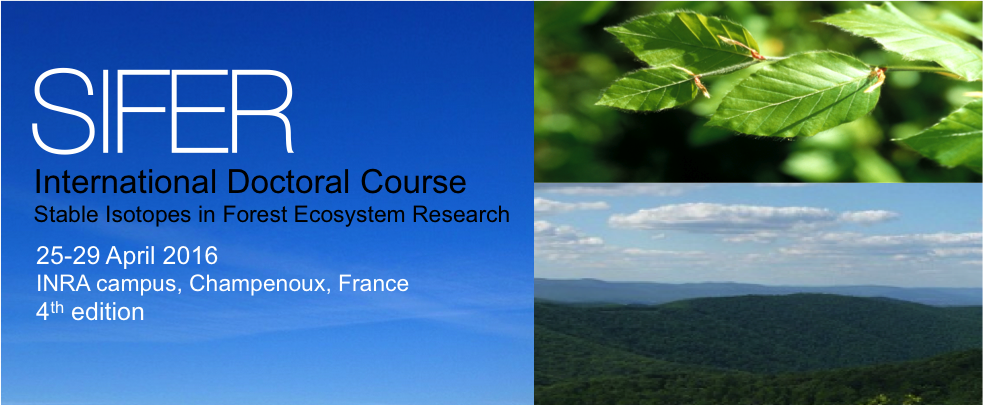Stable Isotopes in Forest Ecosystem Research
25-29 April
INRA Nancy-Lorraine Center
Champenoux
______________________________________________________________
The University of Lorraine (RP2E Doctoral School) and the French National Insitute of Agricultural Research (INRA), within the framework of LabEx ARBRE, are organizing a fourth edition of the International Doctoral Course “Stable Isotopes in Forest Ecosystem Research” (SIFER). The week-long course will be held on the INRA Nancy-Lorraine campus in Champenoux from April 25 to April 29, 2016.
Many ecological processes that occur in forest ecosystems produce a distinct isotopic footprint which can then be used to trace the origin and transfer of major elements into ecological processes, to decipher the effects environmental changes have on metabolic pathways and to understand complex interactions between ecosystem compartments and ecological processes in trees, and more broadly, in forests. Environmental isotope techniques are proven tools for providing relevant information on forest ecosystems and is an area that is experiencing rapid technological advancement.
The primary objective of the SIFER doctoral course is to offer students with an introduction to how stable isotopes are used in forest ecosystem research. The conferences will provide an overview of the main stable isotopes for the carbon, nitrogen and water used in forest ecosystem research, the fractionation processes that affect the distribution of isotopes in different ecosystem compartments, and the use of isotopes (tracers and natural abundance) for modeling different spatial and temporal scales. Questions relating to instrumentation, technological choices and the quality of the measurements will also be addressed. Practical applications and digital exercises will be conducted throughout the week in small groups of students who will have the use of equipment belonging to the functional ecology technical platform.
SIFER is open to all PhD students worldwide currently working on stable isotopes and is not exclusive to studies focused on trees and forests. All courses will be held in English.
For more information, visit the SIFER homepage — SIFER 2016



